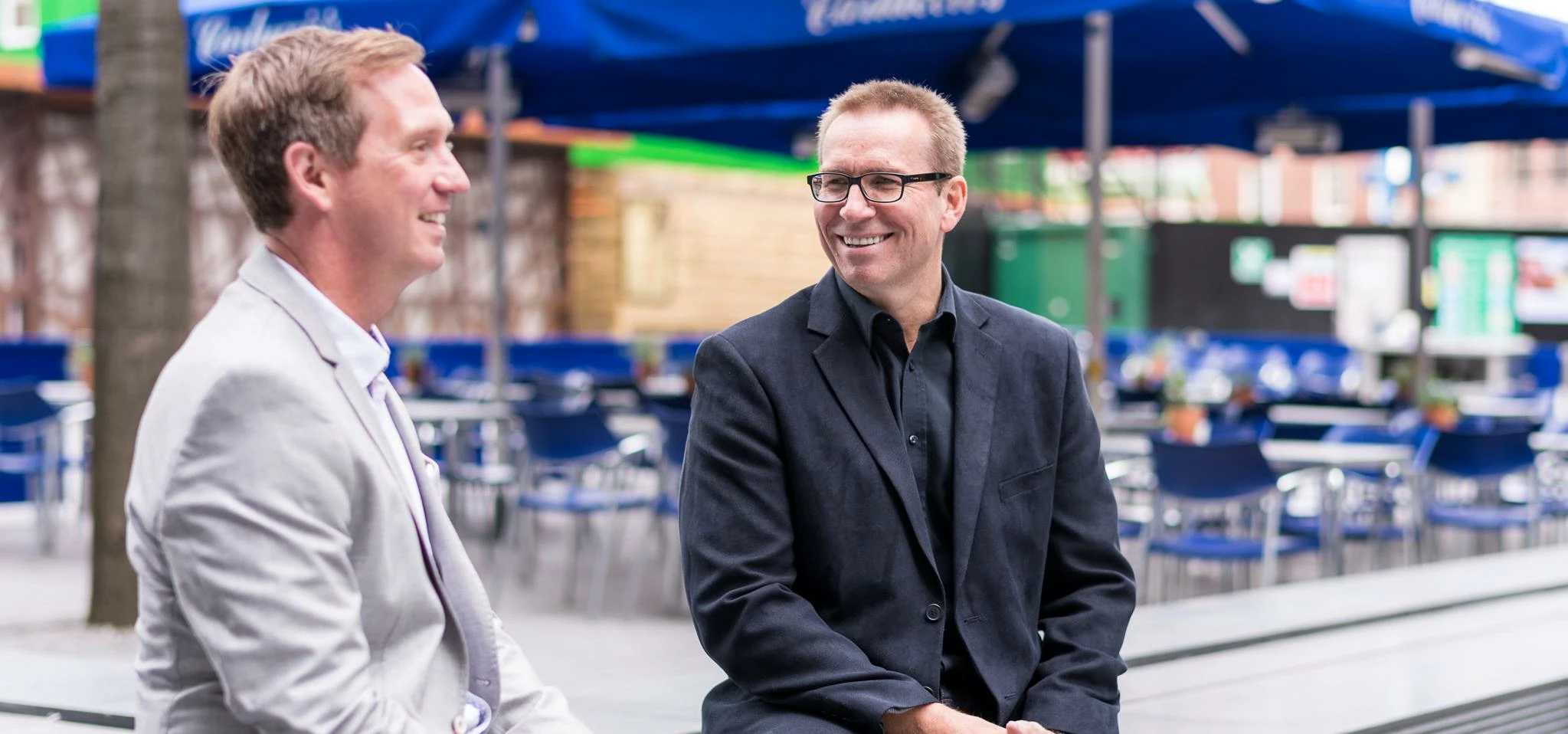
Partner Article
The Creation of Professional Play Hubs
Co-founders CEO Paul Tooth and CMO Paul Harris discuss the rise of professional play in the workplace.
Having a great work culture is vital for any business to succeed, but how do businesses instil a ‘fun at work’ ethos without it being taken advantage of or abused? Paul Tooth and Paul Harris believe in a very simple dynamic: The importance of accountability in the workplace. By trusting the employee, the underlying traits of office play are laid bare.
Paul Tooth argues a large proportion of the responsibility surrounding this cultural play understanding lies in the leadership of the team to ensure the fun isn’t exploited, out of control and ultimately inefficient against any financial targets in place for the company.
‘If a business has a relaxed and playful culture,’ Paul Tooth says, ‘We know it drives wellbeing and reduces stress. A boost in health is a boost in productivity and the business’s bottom line. The trust placed on your team or staff to enjoy a workplace with cultural perks, while also delivering results that effect your business turnover, is paramount.’
Paul Harris agreed, believing if there are no guidelines or more importantly no sense of responsibility, businesses can’t expect people to feel comfortable to let go and have fun. Businesses don’t need rules to be successful, they need a foundation of empowerment and trust across the team. ‘If you can do your job in three days and hit all your targets then great, you can play golf the rest of the week. If the targets are set and achieved, this work/life balance is within everyones’ interest - if they aren’t then it will flip the dynamic of the team. The culture will no longer work.’
Starting at school, your time is split into playtime and work time and the Pauls believe we need to continue to break down the social barriers placed on businesses between play and work. However, increasingly as the working day grows longer there is an increasing demand to have a culture that integrates with employee lifestyles.
In a recent study by BrightHR as part of its It Pays to Play report, it was revealed that actually there has been a rise in employees engaging in fun in the workplace. Interestingly, the research showed working professionals are no longer siting play in the workplace as unprofessional.
Paul Harris, commented, ’What is really insightful is when you start delving into the open responses and listening to what people have to say. Many revealed they found ‘juvenile behaviour in the office’ incredibly unprofessional but were quick to disassociate this with play.
‘Juvenile behaviour actually came about when the fun had been exploited in some way. Many sighted talking about work on Facebook or singing and dancing in the office at inappropriate times as juvenile activity at work.’ Paul believes there is a great importance should be placed on having the right cultural fit for every work environment.
There is a real shift in how employees viewed play in the workplace, with just 22 per cent viewing fun at work as unprofessional. One participant argued it ‘stopped boredom in the office,’ while another claimed ‘it makes everyone less stressed’ and many argued it improved wellbeing of staff.
‘It is fair to say everyone is working longer hours today, as their work life eats into their home life and so on,’ Paul Tooth added. ’It is not surprising that more than half of those surveyed cited ‘sulking’ in the office as the ultimate in juvenile behaviour. For those working towards a happy and productive workplace culture, this is an unpopular chink in the business armour!’
As the workplace evolves, offices are increasingly becoming innovative play hubs. Businesses that embrace fun and play in the office will see a spike in their creativity - being playful is now seen as a professional attribute.
This was posted in Bdaily's Members' News section by Paul Harris .








 Raising the bar to boost North East growth
Raising the bar to boost North East growth
 Navigating the messy middle of business growth
Navigating the messy middle of business growth
 We must make it easier to hire young people
We must make it easier to hire young people
 Why community-based care is key to NHS' future
Why community-based care is key to NHS' future
 Culture, confidence and creativity in the North East
Culture, confidence and creativity in the North East
 Putting in the groundwork to boost skills
Putting in the groundwork to boost skills
 £100,000 milestone drives forward STEM work
£100,000 milestone drives forward STEM work
 Restoring confidence for the economic road ahead
Restoring confidence for the economic road ahead
 Ready to scale? Buy-and-build offers opportunity
Ready to scale? Buy-and-build offers opportunity
 When will our regional economy grow?
When will our regional economy grow?
 Creating a thriving North East construction sector
Creating a thriving North East construction sector
 Why investors are still backing the North East
Why investors are still backing the North East